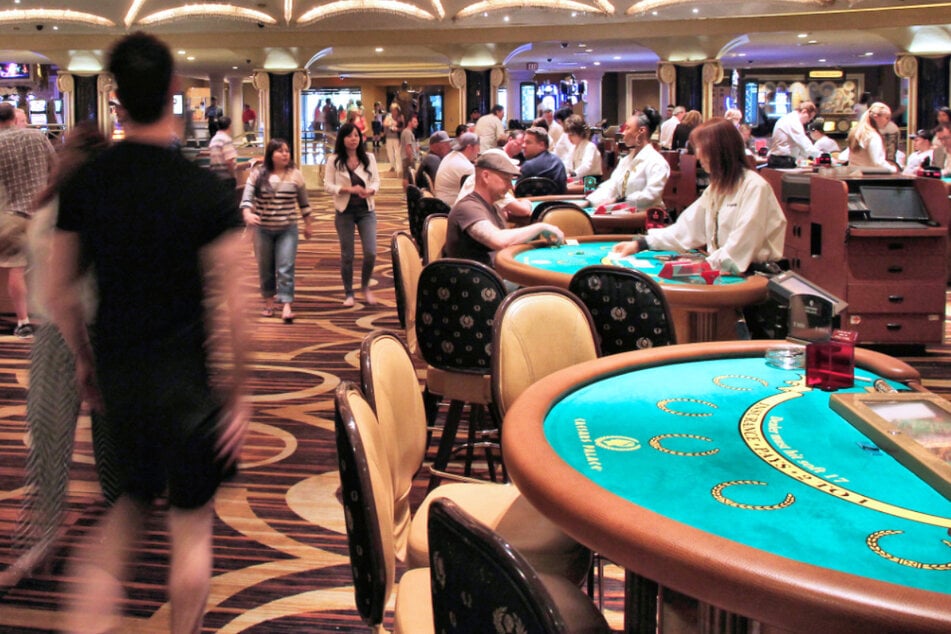Within the lively realm of gambling halls, where the atmosphere pulses with excitement and the clattering of tokens fills the environment, the position of a game dealer is both crucial and fascinating. Every day, these experienced experts step into a world where fortune and strategy intertwine, guiding players through the ups and downs of their chosen casino titles. From table games like blackjack and poker to the revolving wheels of the roulette table, dealers facilitate the action while ensuring that every game runs seamlessly and honestly. RR88
As the day breaks on another bustling day, a casino dealer prepares to immerse themselves in this vibrant environment. Their duties extend beyond merely distributing cards or turning a wheel; they are also performers, customer service representatives, and keepers of the game regulations. Each shift brings new obstacles and interactions, making every day distinct in the life of a casino dealer. This behind-the-scenes look will explore the daily routine of a casino dealer, highlighting the skills and insights that make this profession both thrilling and rewarding.
The Role of a Gambling Table Dealer
A gambling game croupier is at the core of the gaming experience, orchestrating the flow of the play while ensuring that players are involved and enjoying themselves. Their primary responsibility is to manage the game, which includes distributing cards, rotating the wheel, or managing the chips, depending on the type of game being played. Croupiers must have a thorough understanding of the rules and regulations governing each type of game, while also maintaining a welcoming and approachable demeanor to enhance the gaming atmosphere.
In addition to overseeing the gameplay, croupiers must also monitor on the players and the environment around the table. This entails watching for any signs of cheating, making sure that everyone is following the rules, and addressing any conflicts that may arise among players. Strong communication skills are essential, as dealers often give explanations about the game’s mechanics and offer assistance to those who may be new to gambling games.

Moreover, a croupier’s role extends past just the technical aspects of the game. They play a crucial part in crafting an immersive experience for the players. This necessitates building a rapport with patrons, being attentive to their wants, and often adding an aspect of fun into the game. It’s this combination of skill, alertness, and interpersonal relationship that makes the position of a casino game dealer both demanding and fulfilling in the dynamic world of gambling games.
Responsibilities and Challenges in Daily Operations
One of the primary responsibilities of a dealer in a casino is to manage the various games offered at their table, ensuring a smooth and pleasant experience for players. Dealers must be adept at dealing cards, counting chips, and maintaining the continuity of the game. This requires a deep understanding of the regulations of each game, from blackjack to roulette, and the ability to address players’ questions while keeping the game moving. Attention to precision is paramount, as dealers must monitor bets, disburse winnings correctly, and monitor any cheating or discrepancies at the table.
In addition to managing the game itself, dealers encounter challenges such as managing difficult players. The casino environment can be high-pressure, particularly during intense games, and a dealer must remain calm and maintain professionalism at all times. They need strong interpersonal skills to navigate interactions with players who may be upset about losses or dissatisfied with the game’s speed. Handling these situations delicately is important in ensuring a positive atmosphere on the casino floor.
Another significant responsibility is upholding the integrity of the game. Dealers must be vigilant and attentive, watching for any signs of player cooperation or cheating among players. This involves not only a solid knowledge of the games but also an awareness of human behavior. They must also adhere to the casino’s rules and procedures, taking part in regular training sessions to keep updated on rules and protocols. Balancing these responsibilities while providing excellent customer service is what makes the role both challenging and fulfilling for a dealer in a casino.
Qualities and Skills for Success
A proficient casino game dealer must have superior communication skills. This includes merely the ability to effectively explain game rules and procedures to players but also the capacity to interact with them in a cordial and competent manner. Building rapport with customers can enhance the gaming experience and inspire repeat visits to the casino. Effective communication enables dealers to manage tables smoothly while ensuring that players feel valued.
Moreover, strong mathematical skills are essential for a dealer. Quick arithmetic are often required to follow bets, payouts, and game outcomes in real time. A dealer’s ability to perform these calculations accurately and swiftly adds to the overall efficiency of the game. This skill helps in maintaining the flow of play and in minimizing disputes or misunderstandings with players, which is crucial in a fast-paced casino environment.
Lastly, an ideal casino game dealer should show integrity and professionalism at all times. Trust is a key component of the gaming experience, and players must feel assured that the games are conducted equitably and transparently. A dealer’s commitment to upholding high ethical standards fosters a friendly atmosphere at the table and enhances the casino’s reputation. Being consistent in behavior ensures that dealers leave a memorable impression on guests, which can lead to a faithful customer base.